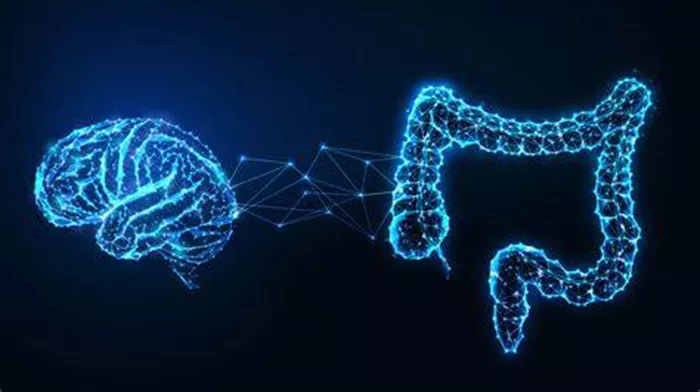A groundbreaking study has uncovered a vital connection between mental states and gut health, revealing how stress-sensitive brain circuits impact gut bacteria and the immune system. The research, conducted by teams from the Icahn School of Medicine at Mount Sinai and the Max Planck Institute for Biological Cybernetics, sheds light on how psychological stress influences the gut microbiome through specialized glands in the small intestine. This discovery could pave the way for innovative therapies, particularly for conditions like inflammatory bowel disease.
The Brain-Gut Connection: A Two-Way Street
The brain and gut maintain a constant dialogue, a relationship that is crucial to overall health. It’s long been established that psychological stress reduces the population of beneficial gut bacteria, leading to weakened immunity. However, the exact mechanisms behind this phenomenon have remained elusive—until now.
Researchers have identified a neural circuit linking the brain to Brunner’s glands, located in the upper small intestine. These glands play a key role in gut health by secreting mucin, a protein that forms the mucus lining the intestinal walls. This mucus is essential for the growth of beneficial bacteria, such as Lactobacilli, which are crucial for maintaining gut health and immune function. When Brunner’s glands were removed from mice in the study, the number of Lactobacilli in their intestines dropped, making the animals more susceptible to gut infections and systemic inflammation.
Brain Circuitry Influences Gut Immunity
A key finding of the study was the role of the vagus nerve, a major component of the parasympathetic nervous system, in the brain-gut connection. This nerve acts as a communication pathway between the brain and the Brunner’s glands, helping regulate their activity. The researchers discovered a direct link between the amygdala, a brain region involved in emotional responses, and the gut.
When the amygdala, triggered by fear or anxiety, reduced its activity, it sent fewer signals to the vagus nerve. This caused the Brunner’s glands to secrete less mucus, which in turn negatively impacted immunity. Remarkably, the effects of chronic stress on the gut microbiome were similar to those observed when the glands were surgically removed, further underscoring the critical role of the brain in gut health.
“Brunner’s glands are more important than previously thought,” noted Hao Chang, lead author of the study. “Controlled by the vagus nerve, they provide a direct link between the brain and the gut microbiome.”
Implications for Treating Stress-Related Gut Issues
The study also explored potential therapies for stress-related gastrointestinal problems. Stimulating either the amygdala or the vagus nerve in stressed mice restored normal mucus production in the gut, effectively reversing the harmful impact of stress on their microbiome and immunity. Additionally, administering probiotics was sufficient to counter the negative effects of stress, offering further therapeutic options.
This research offers significant insights into the well-documented relationship between psychological disorders, such as anxiety and depression, and gastrointestinal and immune conditions. It provides a concrete mechanism for understanding how mental health can influence physical health via the gut, opening up new possibilities for treating conditions that stem from this brain-gut connection.
Looking Toward Future Therapies
The research team is keen to explore clinical applications of their findings, particularly in relation to inflammatory bowel disease (IBD). “We believe these glands are key mediators in inflammatory bowel disease,” said Ivan de Araujo, senior author of the study. “Further investigation could provide new insights into the mechanisms of IBD and lead to innovative therapies.”
This study marks an important step toward understanding the profound connections between the brain, gut, and immune system, highlighting how psychological states directly influence physical health. By continuing to explore this intricate relationship, researchers hope to develop more effective treatments for stress-related diseases and improve overall health outcomes.
[inline_related_posts title=”You Might Be Interested In” title_align=”left” style=”list” number=”6″ align=”none” ids=”12432,12426,12421″ by=”categories” orderby=”rand” order=”DESC” hide_thumb=”no” thumb_right=”no” views=”no” date=”yes” grid_columns=”2″ post_type=”” tax=””]

































